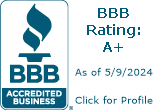GET IN TOUCH
3295 River Exchange Dr., Suite 425
Norcross, Georgia 30092
info@salesandusetax.com
(888) 350-4829
STAY CONNECTED
Join our newsletter and find out more
Contact Us
Thank you for contacting us.
We will get back to you as soon as possible
We will get back to you as soon as possible
Oops, there was an error sending your message.
Please try again later
Please try again later

© 2026
All Rights Reserved | Agile Consulting Group









